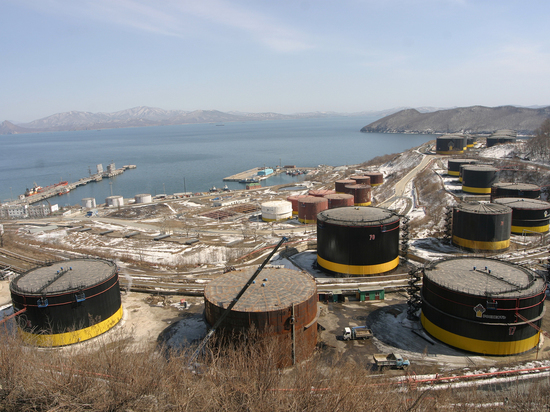What threatens the reduction in exports: there will be nowhere to store “extra” oil
[ad_1]

In 2023, there is a risk of degradation of the extractive industry
The ceiling on prices for Russian oil shipped abroad, announced by Western countries, immediately dealt a serious blow to the domestic extractive industry. According to Bloomberg, in just one week of December, the export of “black gold” from our country fell by more than half. In 2023, the trend will continue – the supply of raw materials to the foreign market may be reduced by a third. In this situation, the question arose, what would Russia do with the barrels that turned out to be “superfluous” – that is, unclaimed by foreign buyers? The answer is not clear, since our industry does not have the ability to store raw materials in reserve.
According to Vladimir Tetelmin, Doctor of Technical Sciences, a member of the Public Council under the Ministry of Energy, Russia, unlike the United States, does not have large storage facilities for crude oil. “As far back as 30 years ago, the Americans took care of creating convenient pantries that would allow stocking up liquid hydrocarbons for the future. They use natural underground cavities – waste rocks, into which “black gold” is pumped. The accumulated resources give the United States the opportunity to do without external purchases of raw materials for three months, ”the expert notes.
Russia, both in Soviet times and in the period of modern history, preferred to follow a less pragmatic path: constantly increasing hydrocarbon production, increasing revenue from the export of raw materials and thinking less about its own energy supply in the future. “For the sake of fairness, it must be said that a certain number of fairly large reservoirs with volumes of up to 50-100 thousand tons have been built in our country, in which it is possible to form the initial potential of the reserve fuel fund. However, even together with the volume of the available tanker fleet, such capacities are clearly not enough to organize oil reserves commensurate with the American ones,” explains Tetelmin.
On the one hand, domestic hydrocarbon reserves still cannot be considered quite modest. According to the assessment of the Russian Gas Society, carried out in 2020 at the request of the Ministry of Energy, their volumes amount to 20-30 million tons (for comparison, in the US strategic reserve – about 110 million tons), of which 85% is intended for oil storage, the rest – for products its processing. At the same time, as the producers themselves clarify, in order for domestic reserves to acquire the status of strategic reserves, these capacities need to be doubled or even tripled. In addition, the existing storage facilities are mainly involved in the process of transporting hydrocarbons and finished fuel through pipelines – they allow the distribution of raw materials in various directions of internal and external supplies. In other words, the domestic system does not provide for commercial storage of energy resources – only for technological purposes. Meanwhile, the construction of the required underground oil storage facilities, according to the most conservative estimates, will take 2-3 years. The main condition for achieving such a goal will be the use of depleted deposits, as is done in the United States, but the Russian industry does not have the relevant experience, and the Americans are unlikely to share their own developments. Otherwise, the creation of Russian storage facilities will take at least 10-12 years.
Meanwhile, long-term storage of oil in artificial or semi-artificial reservoirs has a serious disadvantage. Over time, “black gold” can be stratified into various components, including high-sulfur fractions, which are also listed on the markets, but are much cheaper than the raw materials used to make high-octane gasoline. Other negative examples can be found. For example, during long-term storage of raw materials in oil tanks, bacteria begin to multiply there, turning the sulfur contained in the “black gold” into poisonous hydrogen sulfide. In the summer of 2018, the American Exxon Mobil faced such a misfortune, which purchased 1.5 million barrels of spoiled raw materials from state storerooms, which, if further used, could not only lead to equipment failure, but also pose a mortal danger to people.
However, it is possible to store hydrocarbons directly in the ground, gradually limiting the level of production at the developed facilities and mothballing some wells. From a technological point of view, it is quite possible to put “plugs” on mining pumps. In the future, if necessary, the deposits can be reanimated by revitalizing and clearing productive oil-bearing formations. True, this method of creating reserves is fraught with significant losses. This is a period of experience of the coronavirus period, during which our country reduced hydrocarbon production by shutting down low-liquid wells. As a result, according to the head of the State Commission for Mineral Reserves Igor Shpurov, up to 20% of the reduced production could no longer be restored.
[ad_2]
Source link






